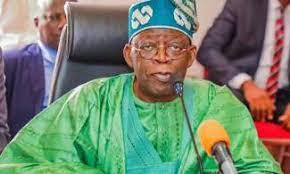The U.S. Department of Defense leaders, Tuesday, attended the A-29 Super Tucano induction ceremony, hosted by Nigerian Minister of Defense, Bashir Salihi Magashi, and the Nigerian Air Force.
A press statement by Public Affairs, United States Africa Command, quoted the U.S. Air Forces Europe-Air Forces Africa commander, Gen. Jeff Harrigian, as stating: “The Nigerian Air Force is one of our key partners that plays a critical role in furthering regional security and stability.
“This ceremony symbolizes the strength of our unique partnership and underscores the value of training and working together.”
The Super Tucanos were the impetus for significant deepening of training and professional relationships, he added.
Precision targeting, air-to-ground integration, and human rights training are all included in the partnership between the U.S. and Nigeria.
The aircraft would assist the Nigerian Air Force in their fight against violent extremist organizations including the Islamic State West Africa Province. The joint structure of air-to-ground integration also supports Nigerian Army and Navy operations. Nigeria purchased the A-29s through the Foreign Military Sales program, which follows the Department of Defense’s “Total Package Approach” model and includes spare parts for several years of operation, contract logistics support, munitions, and a multi-year construction project to improve Kainji Air Base infrastructure.
The total sale was valued at almost $500 million, making it the largest FMS program in sub-Saharan Africa.
Harrigian and U.S. Ambassador to Nigeria, Mary Beth Leonard, spoke to media about how this platform would help improve Nigerian Air Force capabilities, as well as increase training and integration opportunities between Nigerian and U.S. troops.
The A-29 can perform intelligence, surveillance, reconnaissance, and precision air-to-ground strikes, strengthening Nigeria’s ability to fight terrorism.
“The A-29 is a prime tool to help Nigeria combat violent extremism and is vital to sustained deterrence,” Harrigian said.
“The total package deal, aircrew and maintainer training, precision-guided weapon delivery, and more, highlights our enduring partnership with the Nigerian Air Force and our commitment to enabling their successes where we can.”
A total of 64 pilots and maintainers from the Nigerian Air Force trained to U.S. standards with the U.S. Air Force’s 81st Fighter Squadron at Moody Air Base in Georgia, USA.
Training also emphasized the Law of Armed Conflict and civilian casualty mitigation, which are fundamental principles of the Nigerian military’s professional education and training.
As part of the programme, the U.S. Army Corps of Engineers is providing $36.1M in infrastructure support to the A-29s’ home base, Kainji Air Base, including a covered magazines and aircraft sunshades, a new airfield hot cargo pad, perimeter and security fencing, airfield lights, and various airfield apron, parking, hangar, and entry control point enhancements.
The infrastructure package also includes a flight annex wing building for simulator training as well as munitions assembly and storage and small arms storage. USACE has also stationed a project engineer at Kainji to provide ongoing maintenance and assistance.
The Super Tucano induction ceremony was the latest of multiple significant engagements between U.S. Africa Command, its components, and Nigerian counterparts.
Other recent engagements include a visit by the Expeditionary Sea Base USS Hershel “Woody” Williams (ESB 4) in August 2021 and U.S. Army Special Forces training with the Nigeria Navy Special Boat Service in July 2021.
U.S. Army General Stephen Townsend, commander, U.S. Africa Command, visited Nigeria in February 2021, where he met with President Muhammadu Buhari’s Chief of Staff Ibrahim Gambari, Minister of Defense Magashi, and Chief of Defence Staff General Leo Irabor.




